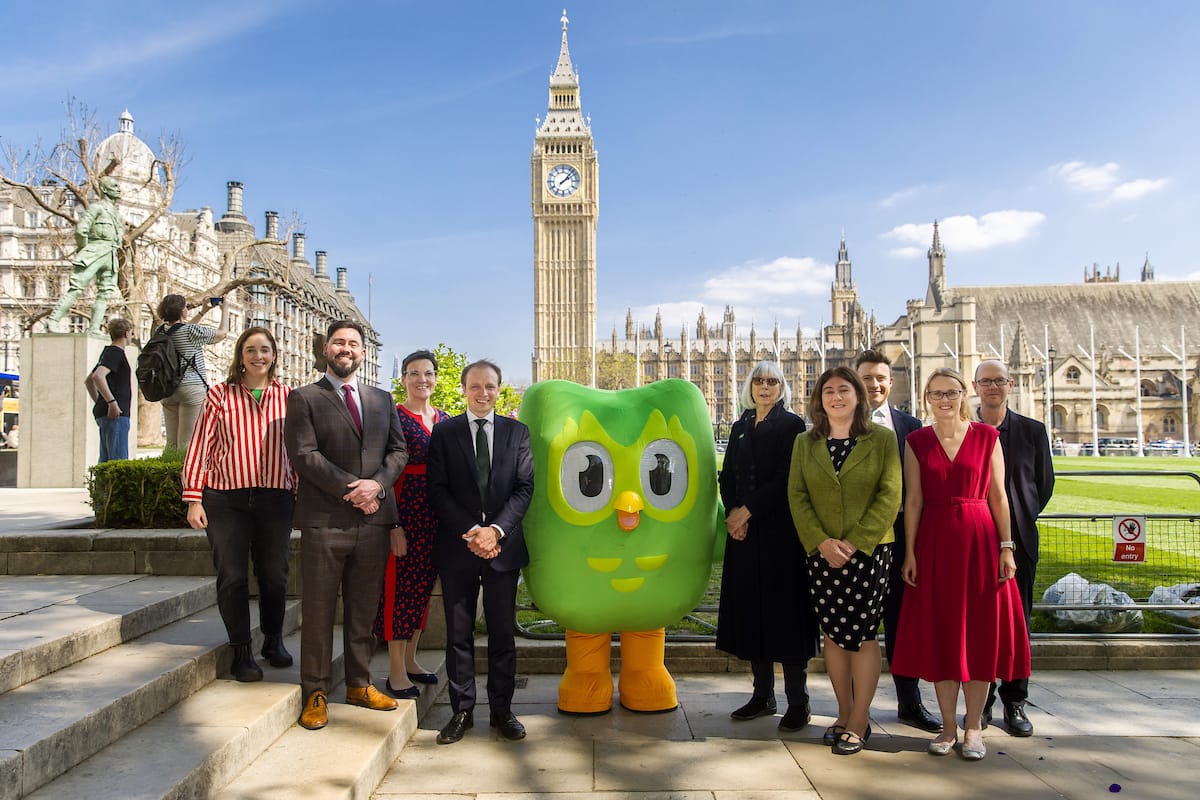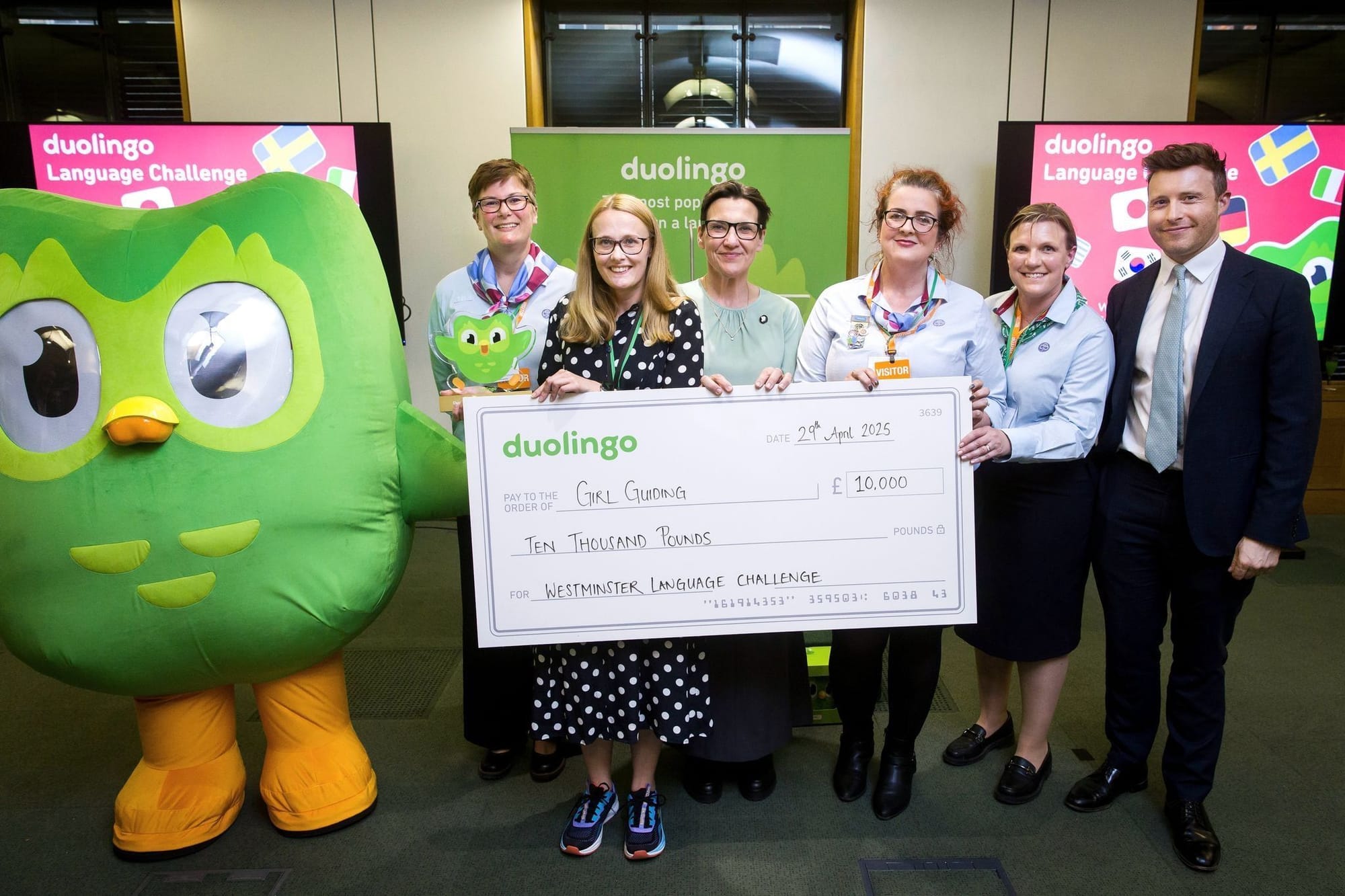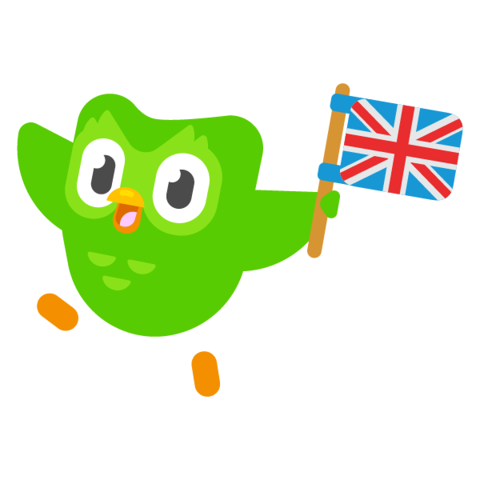When the Westminster Language Challenge launched in January 2025, it posed a simple question to MPs, Peers, and Parliamentary staff: what if we made language learning a daily habit?
Three months—and 65,000 lessons—later, the results speak for themselves. Over 200 parliamentarians took part, learning new languages, rediscovering old ones, and proving that when it comes to learning, it’s never too late to start again.
At an awards ceremony in Parliament last week, Cat Smith MP was crowned the first-ever Duolingo Westminster Language Champion, after a fierce final-week surge in French learning pushed her ahead of early frontrunner Adam Thompson MP. Smith, along with Thompson and Alex Mayer MP, will share a £20,000 prize for charity, celebrating not only their personal achievements but the power of language to connect communities.

Responding to a growing skills gap
The Westminster Language Challenge was created in partnership with the All-Party Parliamentary Group on Modern Languages, following new research from Savanta showing a concerning decline in language skills among UK MPs.
Today, only 13% of MPs speak a foreign language fluently—a sharp drop from 20% two decades ago. Yet 74% of MPs surveyed said they would study another language if they had the time and opportunity. The challenge gave them exactly that: a way to learn that was accessible, flexible, and fun, with a shared goal of encouraging multilingualism in public life.
Over the 90-day competition:
- 3 million XP were earned
- 65,000 lessons were completed
- 125,000 minutes (or 87 full days!) were spent learning
- Twelve MPs kept a perfect 90-day streak
Behind those numbers were stories of connection: MPs learning Welsh to honor their family heritage, Arabic to better serve constituents, or Mandarin to surprise a daughter studying abroad.
Young people are leading the way
While French, Spanish, and German remained the most popular choices among MPs, the Challenge also revealed a gap between Westminster and the broader UK population.
Outside Parliament, East Asian languages like Japanese, Korean, and Chinese are on the rise, especially among learners under 22. Duolingo’s latest data shows that young Britons are not just learning different languages—they’re learning more of them, with a growing number choosing to study two or more languages at once.
This generational shift offers hope for the future: a more linguistically diverse, globally connected UK, driven by young people who see language learning as a tool for opportunity, empathy, and exploration.
Language learning as a bridge—not a barrier
At Duolingo, our mission is to make education free, fun, and accessible for everyone. That mission is about more than app design—it’s about dismantling the barriers that make learning seem out of reach, whether you're a schoolchild in Leeds or a policymaker in Westminster.
The Westminster Language Challenge showed what’s possible when those barriers are lowered. As Cat Smith MP reflected, "By making learning a daily habit, I found myself learning more in these few months as an adult than I ever managed in years at school."
Through playful competition, consistent practice, and community encouragement, participants rediscovered that language learning isn’t just an academic exercise, it’s a way of connecting with others, with history, and with the world.
And when leaders show that commitment, it sends a powerful message: language skills matter, at every stage of life.
A small step, a big signal
Speaking at the awards ceremony, Michael Lynas, Duolingo’s UK Director, emphasized the significance of the effort: "Hundreds of MPs stepped out of their comfort zone and learned a new language. They helped reverse the decline in Parliament’s fluency in foreign languages and demonstrated the power of technology to make learning fun and accessible."
Tonia Antoniazzi MP, Chair of the APPG on Modern Languages, echoed this point: "Language issues are everywhere in policy—from education to foreign affairs, trade, and justice,” he said. “This competition has shown the many reasons MPs have for learning a language—and how enjoyable it can be too."
As we look ahead, we hope the spirit of the Westminster Language Challenge can serve as a starting point: for more language learning in schools, in communities, and in public life. Because education shouldn’t end with formal schooling—and connection shouldn’t end at the border.

📸 Visit our gallery to see more photos of the event!
